Capitalization rules Worksheets for Ages 3-7
7 filtered results
-
From - To
Introduce your little ones to the world of writing with our Capitalization Rules Worksheets for Ages 3-7. These engaging and educational worksheets are meticulously designed to help early learners master the fundamental rules of capitalization in a fun and interactive way. Perfect for preschoolers and early elementary students, the worksheets combine vibrant visuals with clear instructions, making it easy for children to understand and apply the concept of capitalizing sentences, names, days of the week, and the pronoun 'I'. Foster your child's writing skills and confidence as they embark on their journey to becoming proficient writers.
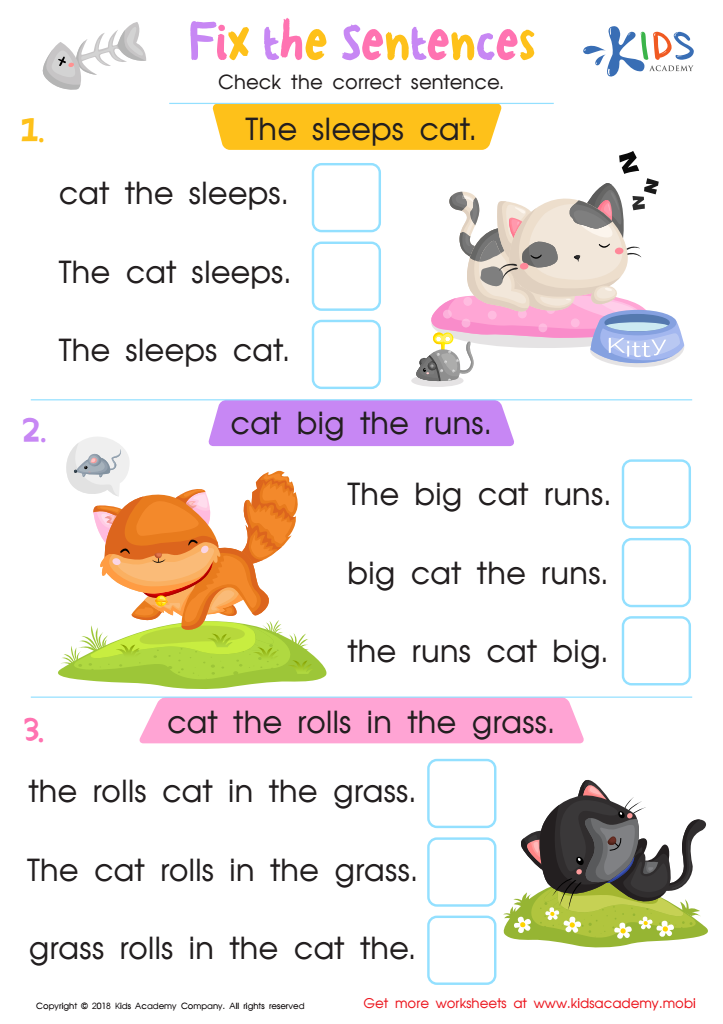

Fix the Sentences Worksheet
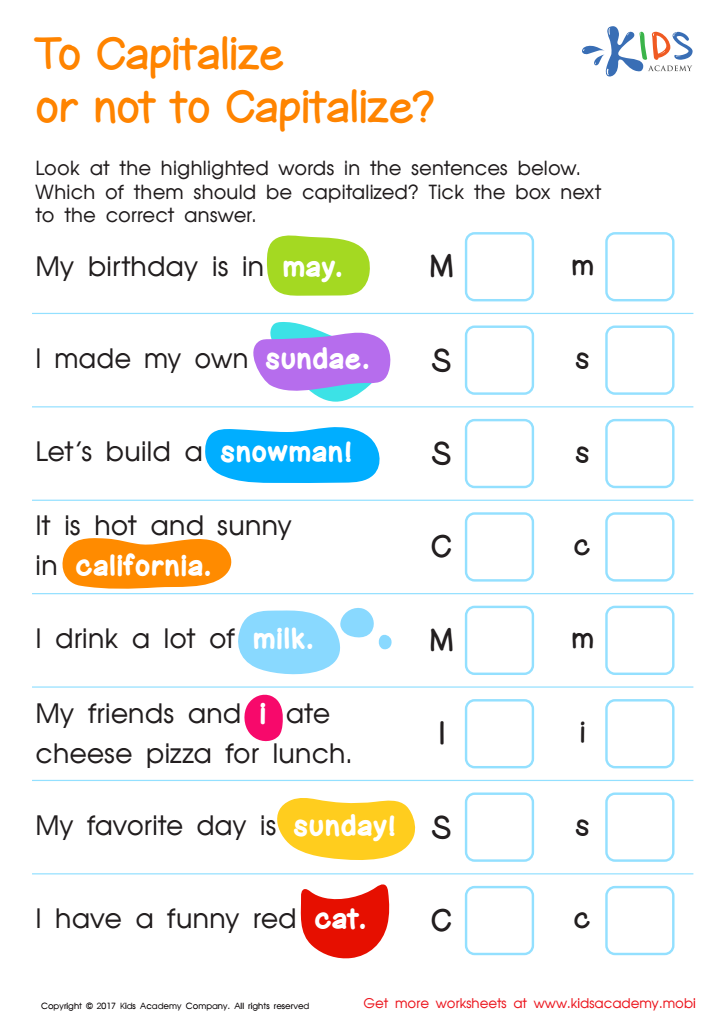

Capitalization: To Capitalize or Not? Printable
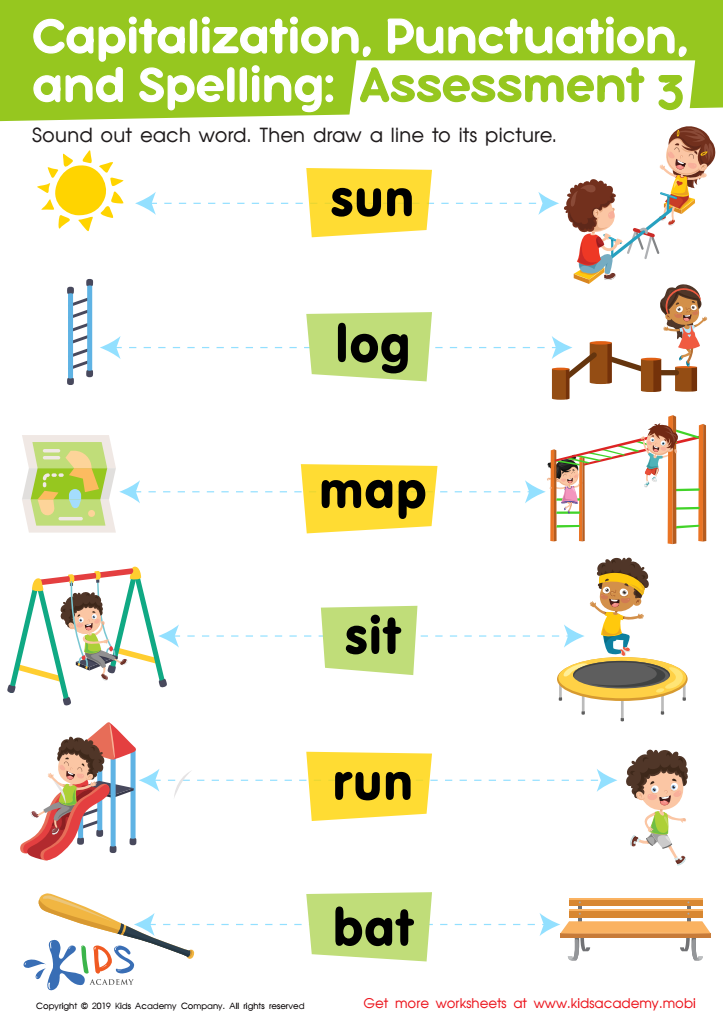

Capitalization. Punctuation. Spelling. Assessment 3 Worksheet
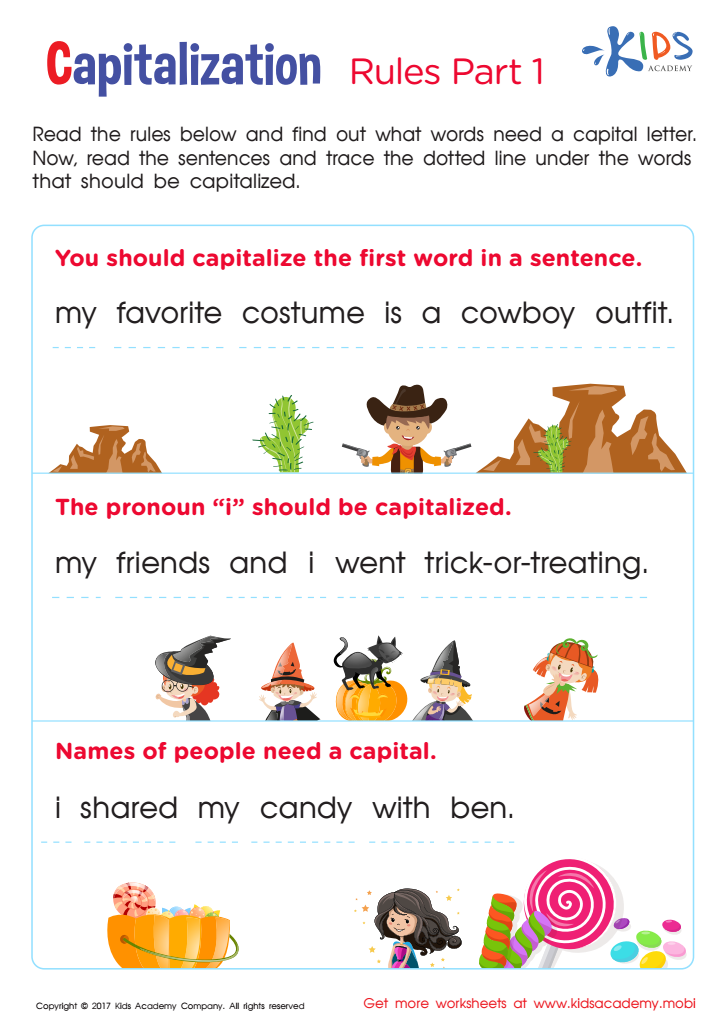

Capitalization Rules: Part 1 Worksheet
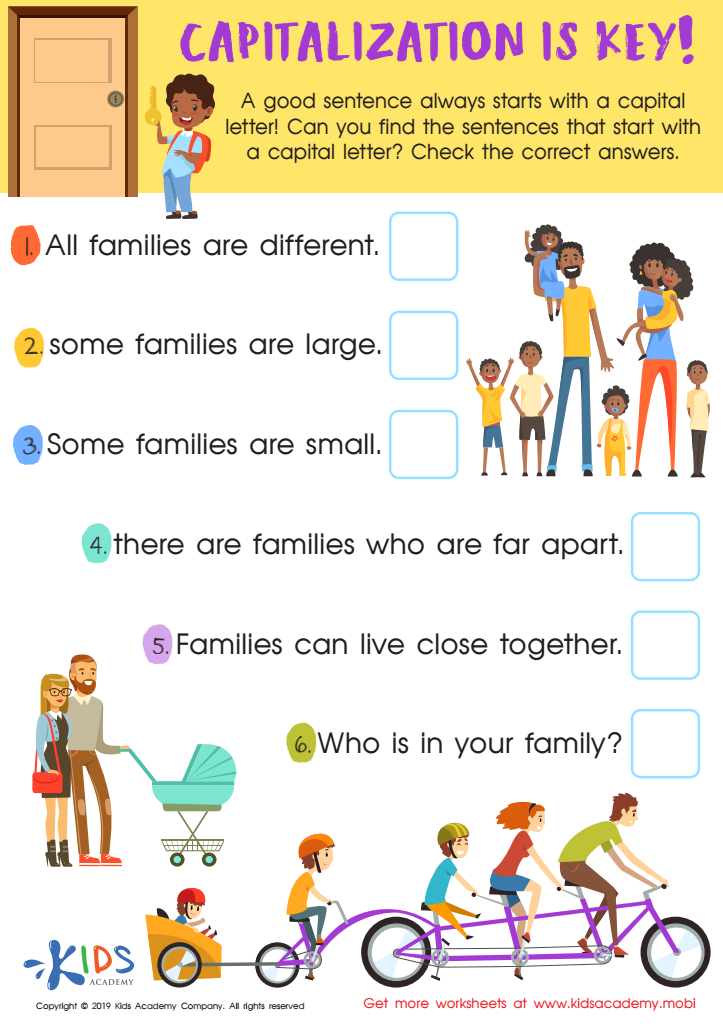

Capitalization Key Worksheet
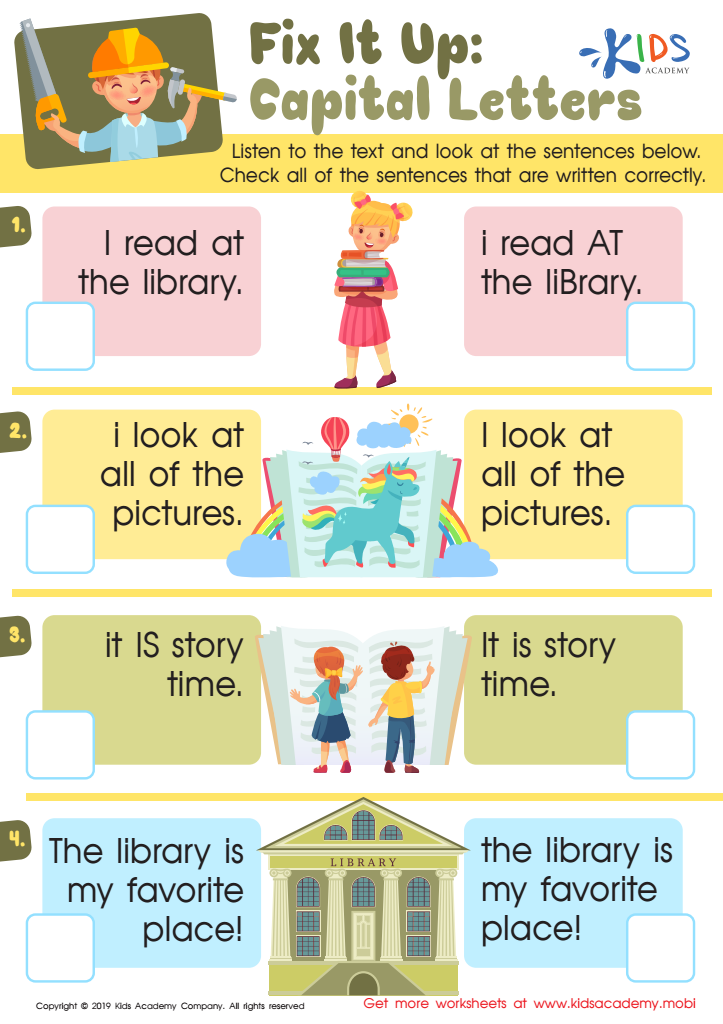

Fix Capital Letters Worksheet
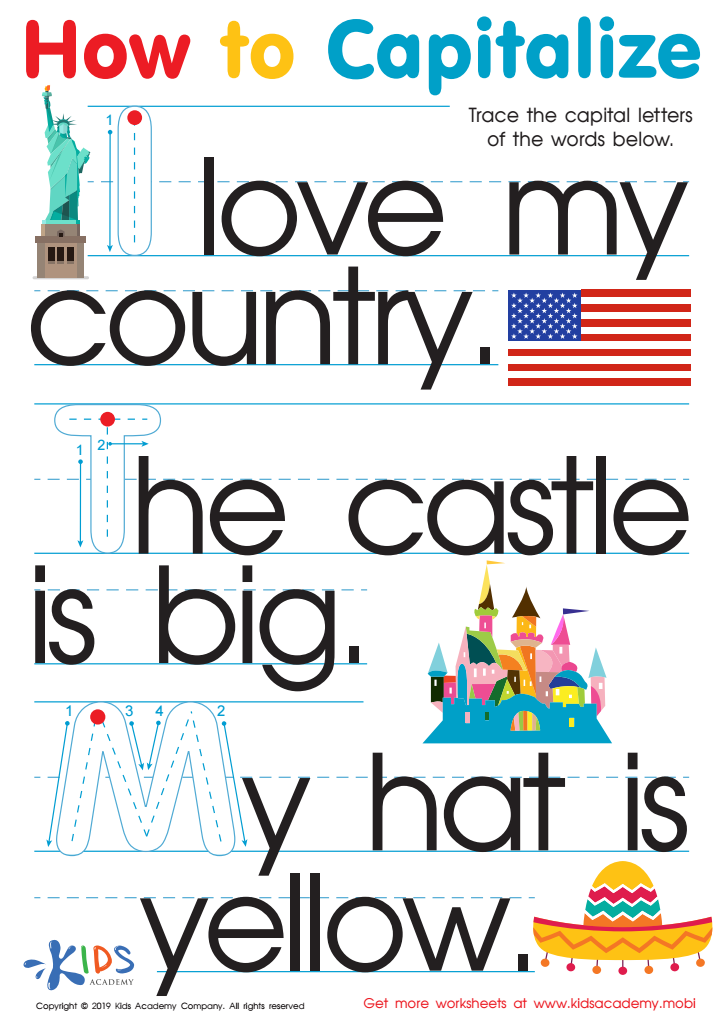

How to Capitalize Worksheet
Understanding capitalization rules is crucial for young children aged 3-7 because it lays the foundation for strong writing and reading skills. At this formative stage, children are just beginning to grasp the basics of language and literacy. Teaching them correct capitalization not only helps in proper sentence structuring but also enhances their comprehension and communication abilities.
Capitilization rules, such as using uppercase letters at the beginning of sentences and for proper nouns, help clarify meaning and improve readability. For instance, capitalizing the word "Mom" when it refers to a specific person helps children differentiate between a general term and a specific title. This attention to detail reduces confusion and aids in understanding more complex texts in the future.
Additionally, early proficiency in capitalization fosters self-confidence in young learners. When children see their written work correctly formatted, they feel a sense of accomplishment, which encourages further learning and participation. For parents and teachers, instilling these rules early simplifies future educational efforts, as children will have a strong grasp of foundational grammar norms.
Moreover, it prepares children for standardized tests and academic expectations, where proper punctuation and capitalization are required. By emphasizing capitalization rules, parents and teachers equip children with essential communication skills that will benefit them throughout their education and beyond.

 Assign to My Students
Assign to My Students
















